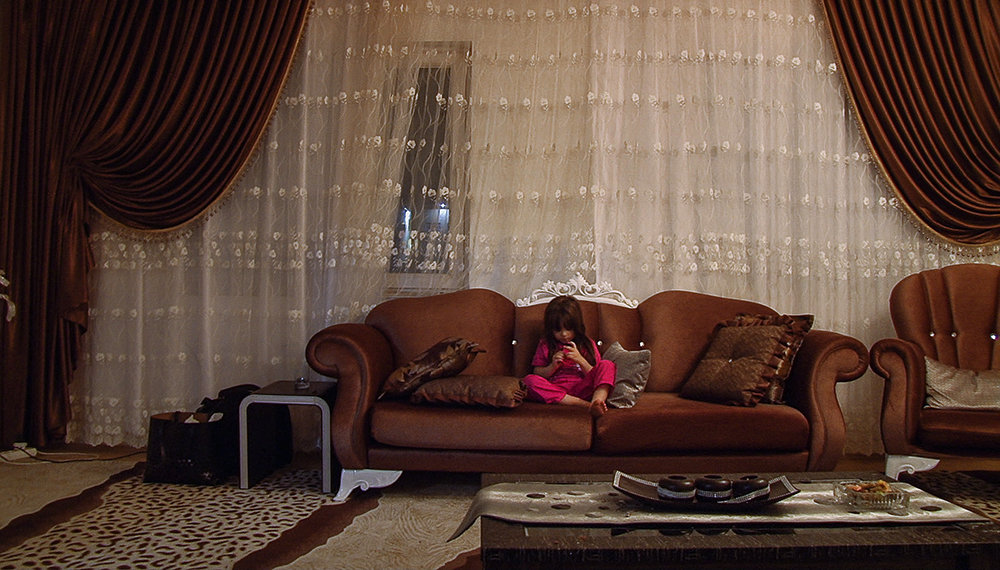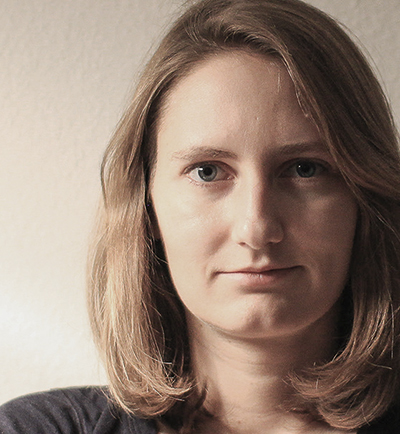After having earned degrees in theatre, film and media studies as well as in communications, Lixi Frank decided to study film production at Film Academy Vienna. Today, with graduation in sight, she can already look back on successful short film productions such as Die Last der Erinnerung (Dir.: Albert Meisl) and Vergeben und Vergessen (Dir.: Michael Ramsauer). Furthermore, she joined forces with classmate Rudi Takacs to produce her first feature-length film, the documentary Paradies! Paradies! (Dir.: Kurdwin Ayub), in 2016. Lixi Frank sat down with mdw Magazine to talk about the fascination of film production, teamwork, the production environment, and cinema in general.

What fascinates you about producing films?
Lixi Frank (LF): What I find most fascinating is that producers come into contact with so many areas. Being a producer also lets me deal with a lot of creative aspects alongside organisational work: I read and analyse screenplays, I talk with directors about casting, and I give the editors my feedback on different versions. It’s fun to work together with creative people, to analyse films, and to learn and understand things like why one approach works dramaturgically while another doesn’t. On the other hand, I also have to put together financing, do calculations, and negotiate with people. This variety is something I find very interesting.
How does your work together with directors look?

LF: Ideally, we start working with each other quite early on—and in many cases, it’s as early as the idea or the initial concept. From feedback on the screenplay or concept all the way to the actual production process, I try to communicate a lot with directors in order to explore ideas and possibilities. The nicest projects are those where a certain cohesive “we-feeling” arises together with the director and we work together on the creative idea. After all, together with the director, I’m the one who participates longest in a project, and it often takes years to get from development to production and on to distribution. The most important thing to me is working together in a spirit of mutual trust, both organisationally and creatively. I’d like directors to view me not just as an organiser, but also as a creative ally.
And with the rest of the team?
LF: With the rest of the team, too, I try to communicate as much as possible. It takes a lot of empathy, because everyone on the team has needs and desires to which you try to do justice. At the same time, a producer often also has to set limits, make unpleasant decisions, and intervene to resolve conflicts. Hitting on a good mix here while remaining fair is something that’s very important to me.
How do you think the conditions under which things are produced will change in the future—including changes due to new providers like Netflix and Amazon?
LF: At the moment, it’s difficult to figure out where things are going, since we don’t yet have so much experience with all that here in Austria. Fundamentally, of course, some things will change, like in distribution: if a film gets financed by Netflix or Amazon, it won’t be present at festivals (or if so, then only outside of competition), nor will it have a classic festival tour or cinema distribution. This model also entails that producers and directors have almost no say in marketing, because the product is finished as soon as it’s been delivered. The directors have to be most conscious of this, because a lot of Austrian filmmakers benefit considerably from artistic success at festivals. On the other hand, of course, these platforms make possible other narrative structures—above all, serial narration—that aren’t really possible in Austria except with the national broadcaster ORF.
Do you like going to the movies yourself? And if yes, why?
LF: Yes, I really do. Taking in a film at a movie theatre is just different—in terms of your ability to concentrate on the film and the “experience”—than watching it at home on your TV or, for that matter, on your laptop. I can often get much more into a film at a cinema, and there are less distractions than at home, where I often catch myself glancing at my mobile phone.

